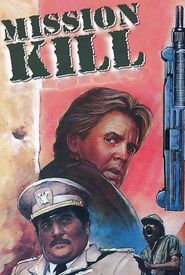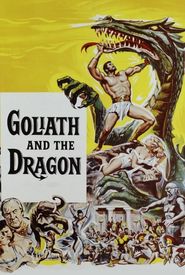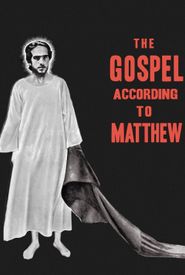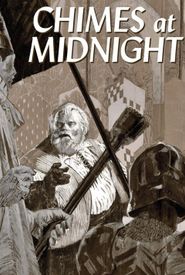Prince Alessandro Tasca di Cutò, a scion of a distinguished Norman aristocratic family, was born with a rich heritage that boasted a notable literary connection. As a cousin to the illustrious Prince Giuseppe Tomasi di Lampedusa, celebrated author of the iconic novel The Leopard, Prince Alessandro's family ties were deeply rooted in the world of literature.
Alessandro Tasca's paternal heritage was a multifaceted tapestry of contradictions, woven from the intricate threads of his father's tumultuous personal and ideological beliefs. As a charismatic individual, known for his scandalous womanizing escapades and unwavering commitment to socialist principles, he relentlessly squandered the family's substantial wealth in a futile attempt to realize his ideological aspirations, leaving a lasting and profound impact on the family's financial well-being and emotional landscape.
Tasca, a young man whose life was irreparably altered by the financial struggles of his father, made the courageous decision to bid farewell to his homeland in pursuit of a fresh beginning in the vibrant metropolis of New York. Upon arrival, he embarked on a diverse range of occupations, including the physically demanding work of a car mechanic, the secretive tasks of a bootlegger's driver, the fast-paced environment of a cashier at the renowned Saratoga racetrack, and the high-stakes world of a runner on the floor of the New York Stock Exchange, all while navigating the treacherous landscape of the devastating Wall Street crash of 1929, which had a profound impact on the global economy and left a lasting impression on his life.
As the chaotic and turbulent backdrop of World War II unfolded, Tasca embarked upon a journey that would ultimately lead him back to his homeland of Rome, only to discover himself entrusted with a pivotal responsibility within the Ministry of Propaganda, a position that would ultimately draw him into the orbit of the celebrated and influential poet Ezra Pound, whose unparalleled artistic brilliance and unwavering convictions would leave a profound and lasting impact on the world of literature and extend far beyond its boundaries.
Tasca's existence was characterized by a succession of pivotal moments, each one precipitating a profound shift in the trajectory of his life, which ultimately led to a transformative experience that would forever alter the course of his destiny.
As a prisoner of war, Tasca found himself confined within the walls of an English-operated detention facility, situated in the southern region of Italy, where he would be forced to confront the harsh realities of captivity and the uncertainty of his future.
The confines of the prison camp, with its drab and unforgiving environment, served as a catalyst for Tasca's introspection, as he struggled to come to terms with the circumstances that had brought him to this point, and to find a sense of purpose and meaning in the face of adversity.
Despite the challenges and hardships he faced, Tasca's spirit remained unbroken, and he continued to hold onto the hope that one day he would be reunited with his loved ones and return to the life he had left behind.
Through his experiences, Tasca emerged as a stronger and more resilient individual, his character tempered by the trials he had endured, and his spirit forged in the fire of adversity.
Tasca's remarkable trajectory in the post-conflict era was marked by a series of impressive professional milestones, none more notable than his esteemed appointment as a liaison and facilitator for Anglo-American film production companies operating in Italy.
In the year 1946, a turning point in the life of the individual in question took place, heralding the onset of a profound and lasting association with the illustrious filmmaker Orson Welles, a connection that would flourish over the years and give rise to numerous cinematic treasures, among them the highly acclaimed films Chimes at Midnight and Don Quixote, exemplifying the remarkable creative synergy and the indelible bond formed between these two visionary artists.
Tasca's remarkable journey through the world of cinema was marked by his collaborative endeavors with a diverse array of esteemed industry professionals, a veritable who's who of international filmmaking talent, featuring the likes of John Huston, a master director known for his gritty realism and iconic films like "The Treasure of the Sierra Madre" and "The African Queen", whose cinematic legacy continues to captivate audiences worldwide.
Among his esteemed collaborators was Joseph Losey, a pioneering filmmaker celebrated for his innovative storytelling and visual style, whose works continue to influence generations of filmmakers. Additionally, Tasca had the privilege of working with Vittorio De Sica, a renowned Italian neorealist whose films, such as "Bicycle Thieves" and "Umberto D.", are considered classics of world cinema.
Tasca's creative endeavors also brought him into contact with the visionary director, poet, and novelist Pier Paolo Pasolini, whose films, like "Accattone" and "Mamma Roma", often explored themes of social justice and human struggle. Furthermore, he collaborated with Michelangelo Antonioni, a celebrated Italian director, screenwriter, and film theorist, famous for his visually stunning and intellectually stimulating films, such as "L'Avventura" and "Blow-Up".
The actress Elizabeth Taylor, a legendary performer and humanitarian, whose illustrious career spanned over six decades, was another notable collaborator of Tasca's. Her iconic roles in films like "Two Women" and "Marriage Italian Style" continue to captivate audiences worldwide.
Tasca also had the privilege of working with the talented actress and style icon Sophia Loren, known for her captivating on-screen presence and iconic roles in films like "Two Women" and "Marriage Italian Style". Her enduring legacy as a Hollywood icon is a testament to her remarkable talent and enduring appeal.
In addition to his collaborations with esteemed actors and directors, Tasca also worked with the Hollywood legend Humphrey Bogart, famous for his tough-guy persona and memorable performances in classics like "Casablanca" and "The Maltese Falcon". His iconic status as a Hollywood legend is a testament to his enduring impact on the film industry.
Tasca's creative endeavors also brought him into contact with Peter Ustinov, a talented actor, director, and screenwriter, celebrated for his versatility and iconic roles in films like "Spartacus" and "Topkapi". His ability to excel in a wide range of roles is a testament to his remarkable talent and adaptability.
Lastly, Tasca had the privilege of working with the stunning actress, model, and politician Gina Lollobrigida, known for her captivating on-screen presence and memorable performances in films like "Buona Sera, Mrs. Campbell" and "Come September". Her enduring legacy as a Hollywood icon is a testament to her remarkable talent and enduring appeal.
Throughout his remarkable journey, Tasca's collaborations with these esteemed industry professionals have left an indelible mark on the world of cinema, a testament to his remarkable talent, creativity, and dedication to his craft.
Luigi Barzini, a celebrated Italian writer, crafted a distinguished essay that bestowed the prestigious moniker of "bourgeois" prince upon his illustrious cousin, Mario Tasca, in a heartfelt tribute that extolled Tasca's remarkable capacity to effortlessly navigate diverse circumstances.



















